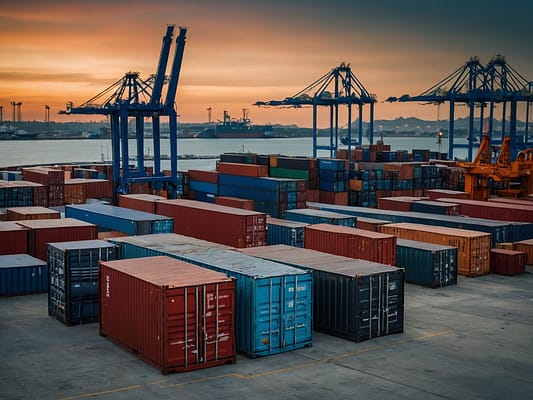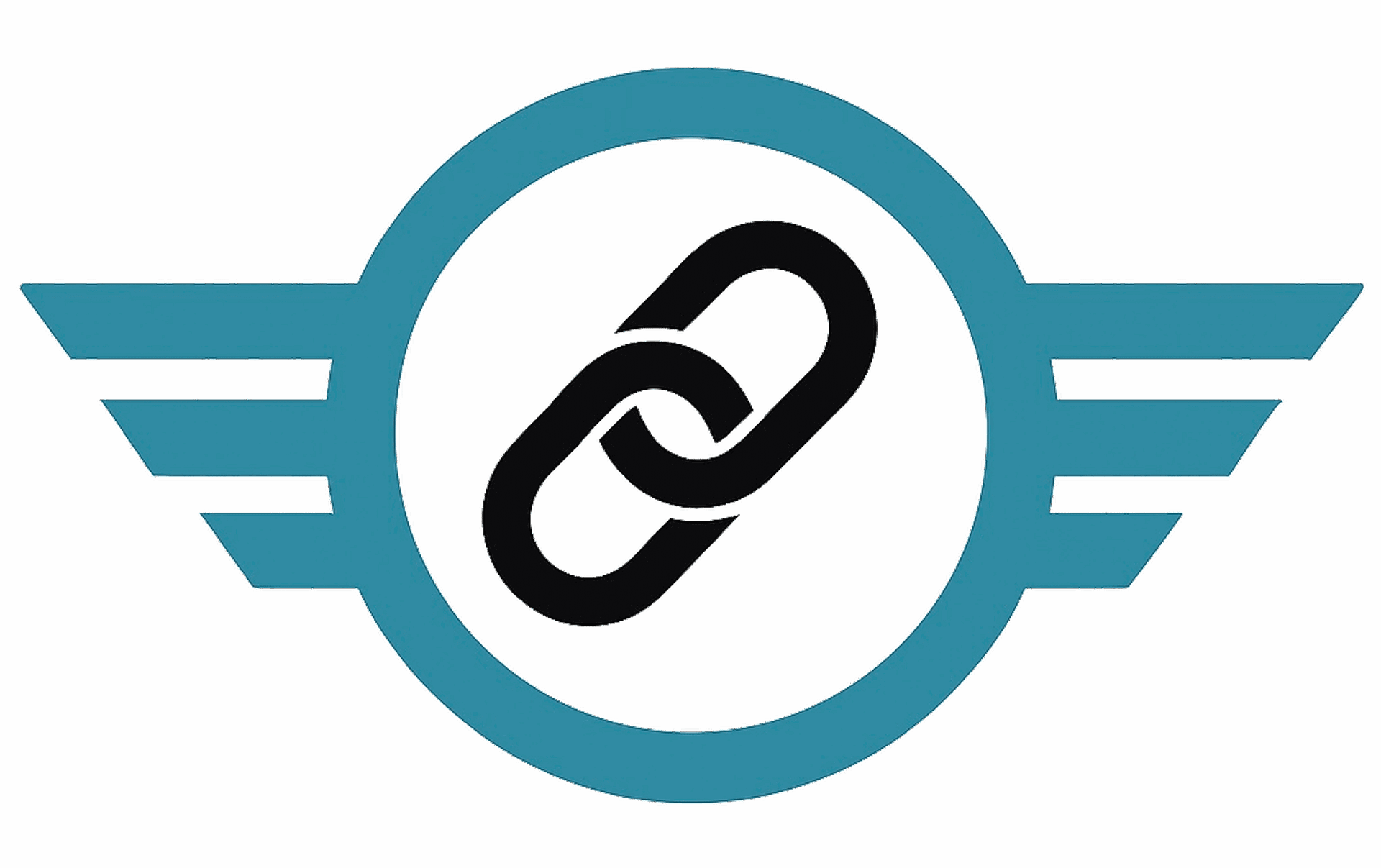How to Stay Ahead of Trade Wars and Sanctions: Insider Tips Revealed!
The Impact of Geopolitical Shifts on International Trade
Introduction
In our globally interconnected world, geopolitical shifts are more than mere headlines; they are seismic events that reshape the landscape of international trade. From trade wars to economic sanctions, these shifts can disrupt supply chains, alter market dynamics, and create a cascade of uncertainties. For businesses engaged in international trade, understanding and adapting to these changes is not just a necessity—it is a critical component of strategic resilience. At TradeLink Solution, we are committed to helping our partners navigate these complexities with expert guidance and proactive strategies.
Geopolitical Risks and Challenges
Geopolitical risks manifest in various forms, each with the potential to significantly impact international trade:
Trade Wars and Tariffs: One of the most prominent examples is the trade war between the U.S. and China. The imposition of tariffs on billions of dollars’ worth of goods disrupted supply chains and increased costs for businesses on both sides of the Pacific. Companies had to quickly reassess their sourcing strategies, often looking for alternative suppliers in other countries to mitigate the impact.
Sanctions and Export Controls: Sanctions imposed by governments can restrict trade with certain countries, affecting businesses that rely on those markets. For instance, sanctions on Iran have severely limited trade opportunities, forcing businesses to find new markets or risk significant financial losses. Export controls can also restrict the flow of technology and other sensitive goods, adding another layer of complexity.
Regional Conflicts and Instability: Political instability and conflict in regions such as the Middle East and Eastern Europe can disrupt trade routes, making it difficult to ensure the smooth flow of goods. For example, the ongoing conflict in Ukraine has affected trade routes and supply chains in Eastern Europe, requiring businesses to find alternative logistics solutions.
Changing Trade Agreements: The renegotiation of trade agreements, such as NAFTA being replaced by the USMCA, can alter the terms of trade between countries, impacting tariffs, labor standards, and environmental regulations. Businesses must stay informed and adapt their strategies to comply with new rules and take advantage of emerging opportunities.
Pros:
- Market Diversification Opportunities: Geopolitical changes can open new markets and trading opportunities. Companies that are agile and quick to adapt can capitalize on these new opportunities.
- Strengthened Resilience: Navigating geopolitical shifts can build stronger, more resilient businesses. Learning to adapt and pivot can prepare companies for future uncertainties.
Cons:
- Increased Costs: Trade wars and tariffs can significantly increase the cost of goods. Companies may need to find new suppliers or pay higher prices, which can squeeze margins.
- Regulatory Complexity: Sanctions and export controls add layers of regulatory complexity. Navigating these rules can be time-consuming and costly.
- Supply Chain Disruptions: Regional conflicts and instability can disrupt supply chains, causing delays and increased transportation costs.
Adapting to Geopolitical Changes
Adapting to geopolitical changes involves a multifaceted approach that includes strategic foresight, diversification, and compliance:
- Diversifying Markets: Relying too heavily on a single market or region can expose businesses to significant risks. Diversifying markets helps spread the risk and opens new opportunities for growth. For instance, companies affected by U.S.-China trade tensions have increasingly looked to Southeast Asia, India, and Latin America as alternative markets.
Detailed Action Steps:
- Market Research: Conduct thorough research to identify potential new markets.
- Use market analysis tools and reports from reputable sources such as the World Bank, IMF, and regional trade organizations.
- Analyze market size, growth potential, regulatory environment, and competitive landscape.
- Local Partnerships: Establish partnerships with local businesses to understand market dynamics and regulatory requirements.
- Attend trade shows and business forums to network with potential partners.
- Utilize services from local chambers of commerce and trade associations.
- Compliance Checks: Ensure compliance with local laws and regulations.
- Hire local legal experts to navigate regulatory requirements.
- Stay updated on changes in local trade laws and practices.
- Marketing Strategies: Develop targeted marketing strategies to effectively enter and compete in new markets.
- Tailor marketing campaigns to local cultures and preferences.
- Leverage digital marketing and social media to reach a wider audience.
- Exploring Alternative Supply Chains: Developing a robust and flexible supply chain is essential for mitigating geopolitical risks. This may involve sourcing from multiple suppliers across different regions, investing in local production facilities, or building inventory buffers. TradeLink Solution helps businesses identify reliable suppliers, negotiate favorable terms, and implement strategies to enhance supply chain resilience.
Detailed Action Steps:
- Supplier Diversification: Identify and vet multiple suppliers across different regions.
- Use supplier databases and industry networks to find potential suppliers.
- Conduct thorough due diligence, including site visits and quality assessments.
- Local Production: Consider investing in local production facilities to reduce dependency on international supply chains.
- Evaluate the feasibility of setting up local manufacturing units.
- Consider joint ventures or partnerships with local firms.
- Inventory Management: Build inventory buffers to mitigate the impact of supply chain disruptions.
- Implement advanced inventory management systems.
- Optimize inventory levels to balance costs and risk mitigation.
- Staying Compliant with Evolving Regulations: Compliance with international trade regulations is crucial to avoid penalties and ensure smooth operations. Businesses must stay abreast of changes in tariffs, customs procedures, and trade policies. TradeLink Solution provides expert guidance on regulatory compliance, helping businesses navigate complex legal landscapes and maintain their competitive edge.
Detailed Action Steps:
- Regular Updates: Stay informed about changes in trade regulations and policies.
- Subscribe to industry newsletters and regulatory updates.
- Participate in trade compliance seminars and workshops.
- Compliance Programs: Develop and implement comprehensive compliance programs.
- Establish a dedicated compliance team or department.
- Create standard operating procedures (SOPs) for compliance processes.
- Training: Conduct regular training for employees on compliance requirements.
- Organize workshops and e-learning modules on compliance topics.
- Ensure that all staff members are aware of their roles in maintaining compliance.
- Audits: Perform regular audits to ensure adherence to regulations.
- Conduct internal audits periodically.
- Hire external auditors for unbiased assessments.
- Risk Management and Scenario Planning: Proactive risk management involves anticipating potential geopolitical shifts and developing contingency plans. Scenario planning allows businesses to assess the impact of different geopolitical events and prepare appropriate responses. TradeLink Solution offers tailored risk management solutions, enabling businesses to stay agile and responsive.
Detailed Action Steps:
- Scenario Planning: Develop multiple scenarios to assess potential risks and impacts.
- Identify key geopolitical risks and create potential scenarios.
- Evaluate the impact of each scenario on business operations.
- Contingency Plans: Create contingency plans for different scenarios to ensure quick and effective responses.
- Develop action plans for each identified scenario.
- Ensure that contingency plans are flexible and can be quickly implemented.
- Risk Assessment: Regularly assess risks and update plans accordingly.
- Use risk assessment tools and frameworks to evaluate risks.
- Update risk assessments periodically to reflect changes in the geopolitical landscape.
- Monitoring Systems: Implement monitoring systems to detect early signs of geopolitical changes.
- Use real-time data and analytics to monitor geopolitical events.
- Set up alerts and notifications for significant developments.
Pros:
- Strategic Flexibility: Diversifying markets and supply chains can make businesses more flexible and resilient. Companies that successfully adapt can maintain continuity and even find new growth avenues.
- Competitive Advantage: Businesses that stay ahead of geopolitical trends can gain a competitive advantage, securing new markets and optimizing their supply chains.
Cons:
- Investment in New Markets: Diversifying into new markets requires significant investment in market research, local partnerships, and compliance with local regulations.
- Supply Chain Overhaul: Shifting supply chains involves identifying new suppliers, renegotiating contracts, and possibly setting up new logistics networks—all of which require time and resources.












Case Studies
Real-world examples highlight the importance of adapting to geopolitical shifts:
Brexit: The United Kingdom’s decision to leave the European Union created significant uncertainty for businesses trading with the UK. TradeLink Solution assisted clients in understanding the new regulatory environment, identifying alternative markets within the EU, and ensuring compliance with new trade agreements. One client, a manufacturer of automotive parts, successfully transitioned to new supply chains in Europe, minimizing disruptions and maintaining market access.
U.S.-China Trade War: A mid-sized electronics company faced increased tariffs on key components imported from China. TradeLink Solution helped the company diversify its supply base by sourcing components from Vietnam and Mexico. This strategic shift not only reduced costs but also improved supply chain resilience, allowing the company to continue its growth trajectory despite the trade war.
Sanctions on Russia: A food export company had significant business interests in Russia, which were threatened by international sanctions. TradeLink Solution worked with the company to identify new markets in Eastern Europe and Asia, providing insights into local market conditions and regulatory requirements. The company successfully pivoted its export strategy, minimizing the impact of sanctions on its revenue.
Middle East Conflict: A textile company faced disruptions due to conflict in the Middle East. TradeLink Solution helped them find alternative suppliers in South Asia, ensuring continued production and supply.
Latin America Political Instability: A beverage company dealing with political instability in Latin America diversified its market by expanding to African countries with TradeLink Solution’s assistance, thus stabilizing their revenue streams.
Pros:
- Learning from Real-world Examples: Case studies provide practical insights and strategies that can be applied to similar situations.
- Demonstrating Adaptability: Showcasing successful adaptations to geopolitical shifts highlights the importance of flexibility and proactive management.
Cons:
- Case-specific Solutions: Solutions that worked for one company may not be directly applicable to another due to differences in industry, scale, and market dynamics.
- Retrospective Analysis: While case studies are valuable, they often involve looking back at past events rather than predicting future trends.
Regulatory Compliance
Compliance with evolving trade regulations is a cornerstone of successful international trade:
Understanding International Standards: Businesses must navigate a complex web of international standards and regulations, from tariffs and customs procedures to environmental and labor laws. TradeLink Solution’s deep expertise in regulatory compliance ensures that clients stay informed and compliant, avoiding costly penalties and operational disruptions.
Navigating Export Controls: Export controls can restrict the flow of goods, technology, and services to certain countries. TradeLink Solution helps businesses understand and comply with export control regulations, ensuring that they can trade securely and legally.
Implementing Compliance Programs: Developing robust compliance programs is essential for mitigating regulatory risks. TradeLink Solution assists clients in establishing comprehensive compliance frameworks, including regular audits, employee training, and monitoring systems. This proactive approach ensures that businesses remain compliant and can quickly adapt to regulatory changes.
Pros:
- Legal Security: Staying compliant with evolving regulations ensures that businesses avoid penalties and maintain smooth operations.
- Market Access: Compliance with international standards can open doors to new markets and trading opportunities.
Cons:
- Resource Intensive: Maintaining compliance requires continuous monitoring of regulations, regular audits, and training programs for employees.
- Operational Complexity: Navigating multiple regulatory frameworks can add operational complexity and require specialized knowledge.
Building Resilient Supply Chains
Resilient supply chains are the backbone of successful international trade:
Identifying Alternative Suppliers: TradeLink Solution helps businesses identify and vet alternative suppliers across different regions. By diversifying suppliers, businesses can reduce dependency on any single source and mitigate the impact of geopolitical disruptions.
Diversifying Sourcing Locations: Sourcing from multiple locations reduces the risk of supply chain disruptions due to regional conflicts or political instability. TradeLink Solution provides insights into emerging sourcing destinations, helping businesses build more flexible and resilient supply chains.
Implementing Risk Management Strategies: Effective risk management involves identifying potential risks, assessing their impact, and developing mitigation strategies. TradeLink Solution offers tailored risk management solutions, including scenario planning, inventory management, and contingency planning, ensuring that supply chains remain agile and responsive.
Pros:
- Reduced Risk: Diversifying suppliers and sourcing locations reduces the risk of supply chain disruptions and ensures continuity.
- Improved Agility: Resilient supply chains can quickly adapt to changes, maintaining service levels and customer satisfaction.
Cons:
- Initial Investment: Building a resilient supply chain requires significant upfront investment in identifying new suppliers, setting up logistics, and establishing contingency plans.
- Complex Coordination: Managing multiple suppliers and sourcing locations increases the complexity of coordination and logistics.
Leveraging Emerging Technologies
Emerging technologies can play a crucial role in helping businesses adapt to geopolitical changes:
Artificial Intelligence (AI): AI can help predict geopolitical risks by analyzing vast amounts of data. AI-driven tools can provide businesses with real-time insights and predictive analytics to make informed decisions.
Blockchain: Blockchain technology can enhance transparency and security in supply chains, making it easier to track goods and ensure compliance with regulations.
Internet of Things (IoT): IoT devices can provide real-time monitoring of supply chain activities, helping businesses quickly identify and address disruptions.
Pros:
- Enhanced Decision-Making: Advanced analytics and real-time data can improve strategic decision-making.
- Increased Transparency: Blockchain and IoT can increase transparency and trust in supply chain operations.
Cons:
- Implementation Costs: Adopting new technologies requires significant investment in infrastructure and training.
- Integration Challenges: Integrating new technologies with existing systems can be complex and time-consuming.
Future Outlook
The future of international trade will be shaped by ongoing and emerging geopolitical trends:
Emerging Markets: Emerging markets in Africa, Asia, and Latin America offer significant growth opportunities. TradeLink Solution provides insights into these markets, helping businesses navigate local regulations, understand market dynamics, and establish successful trade relationships.
Shifting Alliances: Political alliances and trade partnerships are constantly evolving. Businesses must stay informed about geopolitical developments and adapt their strategies accordingly. TradeLink Solution monitors global trends and provides actionable insights to help businesses stay ahead of the curve.
Evolving Trade Policies: Trade policies and agreements will continue to change, impacting tariffs, regulations, and market access. TradeLink Solution ensures that clients stay informed and compliant, leveraging new opportunities and mitigating risks.
Pros:
- Opportunities in Emerging Markets: Emerging markets in Africa, Asia, and Latin America offer significant growth opportunities. Businesses that can navigate local regulations and market dynamics can capitalize on these opportunities.
- Proactive Adaptation: Staying informed about geopolitical trends allows businesses to proactively adapt and secure a competitive edge.
Cons:
- Uncertainty: The future geopolitical landscape is uncertain, requiring businesses to continuously adapt and remain vigilant.
- Continuous Investment: Preparing for future trends requires ongoing investment in market research, compliance, and supply chain resilience.
Resources and Tools
To effectively manage geopolitical risks, businesses can leverage various resources and tools:
- Geopolitical Risk Management Platforms: Tools like Stratfor, Geopolitical Futures, and Eurasia Group provide expert analysis and forecasts on geopolitical trends.
- Supply Chain Management Software: Solutions like SAP Ariba, Oracle SCM, and Infor Nexus help manage and optimize supply chain operations.
- Compliance Management Systems: Tools like Thomson Reuters ONESOURCE and Amber Road provide comprehensive compliance management solutions.
“Using TradeLink Solution’s services has been a game-changer for our company. Their expertise in navigating geopolitical shifts and managing supply chain risks has provided us with the strategic flexibility we needed to thrive in uncertain times. From identifying reliable suppliers to ensuring regulatory compliance, TradeLink Solution has been instrumental in helping us maintain resilience and seize new market opportunities. Their tailored risk management solutions and proactive guidance have given us a significant competitive advantage. I highly recommend TradeLink Solution to any business looking to navigate the complexities of international trade.”
— Jane Doe, Senior Operations Manager at Global Trade Enterprises
FAQs
Q: How can businesses stay updated on geopolitical changes? A: Businesses can subscribe to geopolitical analysis services, follow relevant news sources, and participate in industry forums and conferences.
Q: What are the first steps in diversifying supply chains? A: Start by conducting a thorough assessment of current supply chains, identify potential risks, and research alternative suppliers and locations.
Q: How can TradeLink Solution help with compliance? A: TradeLink Solution provides expert guidance on regulatory compliance, helping businesses navigate complex legal landscapes and implement robust compliance programs.
How TradeLink Solution Can Benefit Your Business
At TradeLink Solution, we offer comprehensive support to help businesses navigate the complexities of geopolitical shifts:
- Expert Guidance: Our team of experts provides actionable insights and strategic guidance, helping you stay ahead of geopolitical changes.
- Market Diversification: We assist in identifying and entering new markets, ensuring that your business can capitalize on emerging opportunities.
- Supply Chain Resilience: We help build resilient supply chains by identifying reliable suppliers, diversifying sourcing locations, and implementing robust risk management strategies.
- Regulatory Compliance: Our deep expertise in regulatory compliance ensures that your business remains compliant with evolving trade regulations, avoiding penalties and maintaining smooth operations.
- Risk Management: We offer tailored risk management solutions, including scenario planning and contingency planning, to ensure that your business can quickly adapt to geopolitical disruptions.
Conclusion
In the ever-changing world of international trade, understanding and adapting to geopolitical shifts is crucial for success. TradeLink Solution is your trusted partner, offering expert guidance and support to help you navigate these complexities. Together, we can turn challenges into opportunities and build a resilient, thriving business.
For more information and expert assistance, visit TradeLink Solution.



